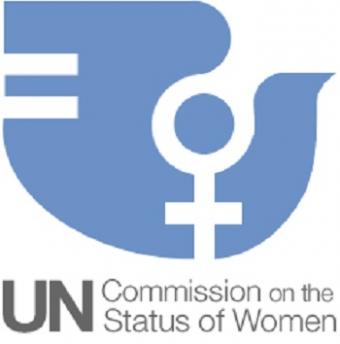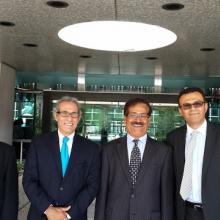UN Elects Misogynists to Steer the Advancement of Women’s Rights

By Mehrtash Rastegar
UN and Human Rights Correspondent
The United Nations' Economic and Social Council (ECOSOC) is responsible for the establishment of the 'Commission on the Status of Women' (CSW), maintaining that it is the ‘principal global policy-making body’ that is ‘dedicated exclusively to gender equality and [the] advancement of women’.
Bearing such a goal in mind, the United Nations recently elected Sudan, Iran and Pakistan to sit as ‘distinguished members’ on the CSW – the key international women’s rights monitoring body. Unfortunately, these countries are renowned for heavily subjugating women in their national legislation and practice.
According to a report by UNICEF, 12.1 million women in Sudan have suffered the heinously ignorant and patriarchal malice of female genital mutilation (FGM). Sudanese girls and women with almost no education are four times more likely to support the continuation of FGM. The UNICEF report conveyed that FGM takes place across the various faiths and cultural backgrounds for the purpose of curtailing sexual liberty in women. This serves to demonstrate that the cause of FGM is more entrenched in the patriarchal culture of misogyny, rather than any religious command.
Iran’s women’s rights record is no less disappointing. The Civil Code permits the forceful marriage of thirteen year-old girls to men decades their senior, simply at the behest of their fathers. The minor has no right to refuse. According to the disturbing finding of UN Special Rapporteur Coomaraswamy, the inequalities in law and justice in the Islamic Republic of Iran reveal that should a man find out his wife has been unfaithful, he is permitted to execute her; however, the very same legal system will execute a woman who murders her husband if the situation was reversed. The Iranian Civil Code favours the father over the mother to take custody of their children in divorce cases. Men may successfully file for divorce at any time, whereas women may only file for divorce if they can prove they face physical harm if they continue with the marriage. Men may control the liberty of their wives by refusing to permit them to accept employment; women need to obtain written permits from their husbands before embarking on journeys outside the home.
In Pakistan, women who report their harrowing experience of rape to the authorities are subject to a Kafkaesque reversal of justice. They are charged with ‘false accusation’ for failing to present the highly impractical evidential requirement of presenting four male witnesses, and are subsequently flogged and imprisoned. The very requirement of four male witnesses is in itself discriminatory as the testimony of a male is considered to be worth more than that of a female.
The Convention on the Elimination of All forms of Discrimination Against Women (CEDAW) is perhaps the greatest international legal instrument ever devised to protect and promote the rights of women in securing gender equality. Pakistan is signatory to CEDAW; however, the flagrant disregard for the rights of women continues. Iran has persistently refused to ratify CEDAW, arguing it is in direct conflict with its Constitution. To many, it may be the logical approach to set the ratification of CEDAW and its full compliance as the prerequisite for election to sit on the CSW, or any other women’s rights committee at the UN. However, this sadly is not the case.
With such prolonged systematic acts of gender discrimination and the blatant disregard for the rule of law exhibited by Sudan, Iran and Pakistan, this election strikes an insulting blow to the victims of gender discrimination, and to the efforts and advancements made by campaigners of gender equality. The aims promised by the CSW and ECOSOC have been rendered null and void by such a contradictory act; the absurdity of electing these gross violators of women’s rights to sit on the key international women’s rights monitoring body is akin to electing Al-Qaeda to head an anti-terrorism initiative. The decision-makers in the higher echelons of the UN should seriously consider seeking and implementing reforms in the criteria for candidacy to sit on influential human rights bodies.
Mehrtash Rastegar 4/27/2014
Opinions contained within the article is of the author and not necessarily representative of Iran Roundtable.
Iran Roundtable publishes these articles for the sole purpose of disseminating information to stimulate discourse and awareness and diversity of issues.

